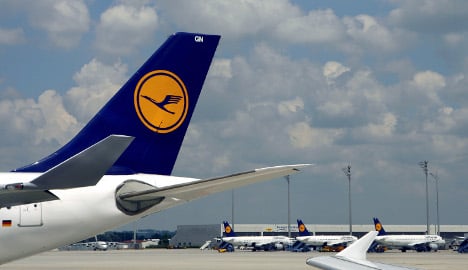Ninety-three percent of the airline’s 4,500 pilots backed heading to the picket line for four days starting Monday, according to their union Cockpit.
The first wave of stoppages would start at midnight on Monday and run until 11:59 pm on Thursday, and would also affect Lufthansa’s huge cargo business and its Germanwings subsidiary, the trade union Cockpit said.
“All 4,000 pilots working on those days are called upon to strike,” union official Ilona Ritter said. “Lufthansa management bears all the responsibility for this dispute.”
The airline, which operates around 800,000 flights around the world every year, is drawing up emergency plans including putting customers from several flights onto larger aircraft and providing train tickets, newspapers said.
“We are preparing for different scenarios with different measures with the aim of limiting the impact on passengers as much as possible,” said Lufthansa spokeswoman Claudia Lange.
Lufthansa was hit nine years ago by the worst strike in the airline’s history that went on for four months and cost the German firm millions of euros.
“It’s going to be around the same scale this time,” the Rheinische Post cited an official at the Cockpit trade union as saying. “Small warning strikes are insufficient. The differences are too fundamental this time.”
“Only if Lufthansa makes a last-minute offer will industrial action be avoided,” a Cockpit spokesman told the paper.
European airlines have been fighting for survival for several years as they battle with the triple whammy of budget airlines poaching customers with low prices, soaring high fuel costs and the worst global recession in decades.
In response, they have sought to consolidate, as seen in Air France’s mega-merger with Dutch KLM, and by attempting to cut costs wherever they can, including by slashing jobs and levels of service.
Lufthansa saw sales slump over 13 percent in the first nine months of 2009, the latest figures available, with operating income sliding 76 percent and a net loss of €32 million.
Talks between Lufthansa and unions collapsed in acrimony in December, with Cockpit demanding a pay increase of 6.4 percent for the next 12 months and commitments that Lufthansa’s German pilots would keep their jobs.
Pilots fear that their jobs could go as Lufthansa steps up use of foreign affiliates like Swiss, Austrian Airlines and British Midland instead of its own aircraft. They are so worried about their jobs that they are willing to compromise on their salary demands, the union says.



 Please whitelist us to continue reading.
Please whitelist us to continue reading.
Member comments